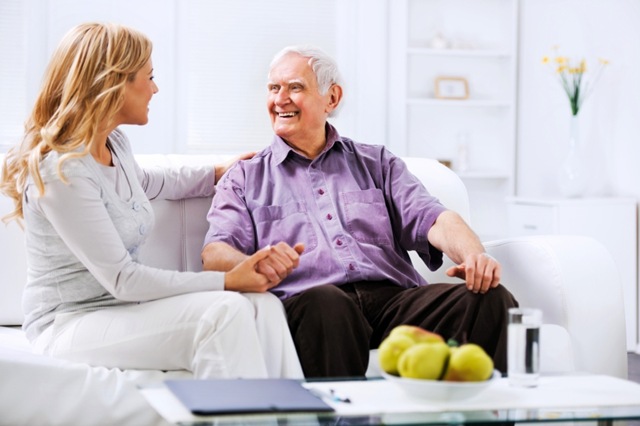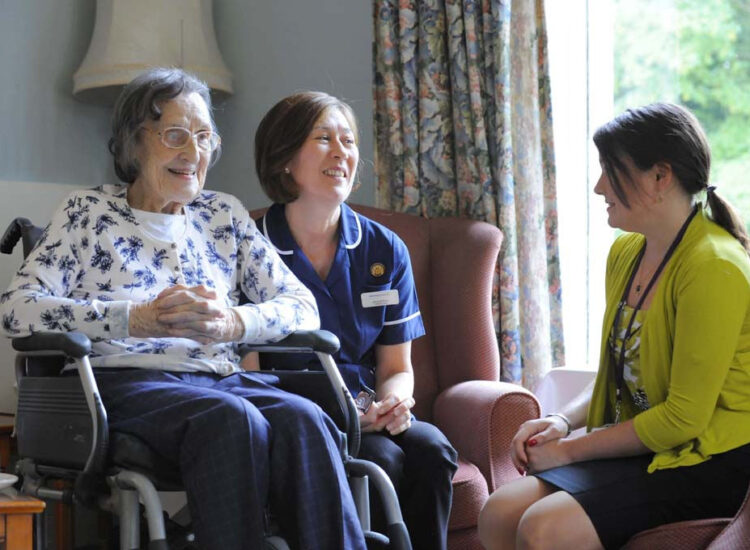If you have an elderly loved one living alone you may have numerous concerns. In fact you may not know what is important to pay attention to and what you don’t need to worry about. Here is a list of items that are important for families with an elderly loved one living on their own to keep an eye on.
Fall Prevention
According to the CDC, each year 2.5 million seniors are treated in a hospital due to a fall. One in five of these seniors has a serious injury such as a bone fracture or head injury. Therefore senior falls are a serious medical issue. Steps you can take to help reduce the likelihood of a fall for your loved one include:
- Reduce clutter in the home. Ensure they have a clear path to and from the bedroom and the bathroom.
- Verify sturdy handrails are installed on both sides of any stairs in the home and that the stairs are free of clutter.
- Make sure your loved one wears proper footwear with tread both inside and outside the home.
- Check medications to determine if dizziness is a side effect.
- Have their vision checked. Changes in vision can increase the risk of a fall.
Eating Well?
Many family members worry their loved one is not eating properly. Without enough food our bodies start to fail. Yet, it often becomes more difficult to prepare meals with age making skipping meals more likely. Consider stocking their freezer with meals you have prepared in advance that they can heat up. Offer meal replacement drinks for those times they don’t have the energy or desire to cook or eat. Consider hiring a home health agency. A caregiver can come to the house, help your loved one prepare a meal and also ensure they eat an adequate amount.
Depression
Seniors face an increased risk of depression. Often as they lose independence they find they feel hopeless. Signs that your loved one is depressed include a decreased appetite, changes in sleep patterns (either insomnia or sleeping more because they feel fatigued) and/or a feeling of hopelessness. If you observe these signs talk with your loved one and their doctor. Medication may be prescribed or the doctor may suggest finding a companion for your loved one.
For additional information about care of an elderly loved one contact us at Best Care.



